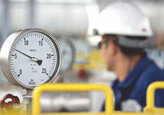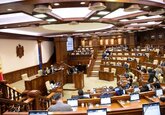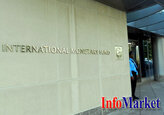
Moldova may introduce a moratorium on the construction of new gas stations and abolish the license fee for the import and wholesale of petroleum products.
At the same time, fines for violating the legislation on the oil products market may be toughened. This is provided for by the draft amendments to the Law on the Oil Products Market and a number of other regulations, which are to be discussed on October 19 at public consultations organized by the parliamentary commission on economy, budget and finance. According to MP Radu Marian, an excessively large number of filling stations in Moldova leads to an increase in the costs of companies and an increase in prices for oil products. Today Moldova ranks third in the number of cars served per station in Europe (after Greece and Latvia), and the volume of fuel per station is several times lower than in the countries of the region. To solve this problem, it was proposed to introduce a temporary moratorium, it will be in effect until the authorities develop strict criteria for the construction of gas stations. The bill also proposes to abolish the fixed license fee for the import and wholesale of petroleum products in the amount of 260 thousand lei per year and replace it with a fee of 10 lei per ton of petroleum products. This will create free competition in the market and remove the existing barrier for small importers. Another provision of the project is to increase the amount of fines for violation of industry legislation up to 10 times. Today, the fines range from 3,000 to 15,000 lei, a symbolic amount compared to the hundreds of millions of lei revenues received by the companies participating in the market. The increase in fines will stimulate their discipline. In addition, it is proposed to prohibit the wholesale resale of petroleum products. The amendment introduced in 2017 allowed any market participant to buy oil products in the country for subsequent sale. This led to the fact that large companies strengthened their positions, and many small importers disappeared. The number of licensed importers of petroleum products decreased by 40% - from 37 in 2018 to 22 in 2020. The authors of the draft law believe that regulations that allow importers to purchase petroleum products in the country for subsequent sale contribute to the smuggling and sale of fuel on the black market. The bill proposes to return to the wording of the 2018 law and allow the wholesale sale of petroleum products only to end consumers. This will lead to more importers and a more dynamic competitive environment. // 18.10.2021- InfoMarket.







